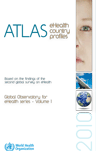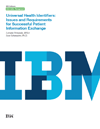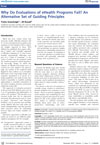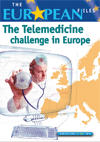ATLAS - eHealth Country Profiles
- Details

This publication presents data on the 114 WHO Member States that participated in the 2009 global survey on eHealth. Intended as a reference to the state of eHealth development in Member States, the publication highlights selected indicators in the form of country profiles. The objectives of the country profiles are to: describe the current status of the use of ICT for health in Member States; and provide information concerning the progress of eHealth applications in these countries.
Trends in eHealth
- Details

Electronic Healthcare Solutions
- Details

New Zealand Health Technology Excellence - Delivered to the World
- Details

Universal Health Identifiers: Issues and Requirements for Successful Patient Information Exchange
- Details

Scott Schumacher, PhD
The healthcare industry is moving toward a future where the electronic exchange of health data will be commonplace. As we enter this new world, there is an increased need to accurately identify an individual across jurisdictions or care-settings so that healthcare providers have a solid foundation for sharing patient health information and providing safer, more cost effective treatment.
Why Do Evaluations of eHealth Programs Fail? An Alternative Set of Guiding Principles
- Details

The European Files: The Telemedicine Challenge in Europe
- Details

More Digital Health News ...
- Interoperable eHealth is Worth it - Securing Benefits from Electronic Health Records and ePrescribing
- A Healthy Approach - Technology for Personalised, Preventative Healthcare
- ICT Research: The Policy Perspective
- Business Models for eHealth - Final Report
- The 2010 Report on R&D in ICT in the European Union
- ICT Enabled Independent Living for Elderly
- Regulatory Framework for Electronic Communications in the European Union